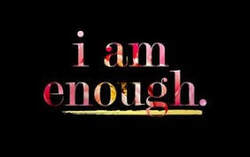
Instead of turning out a well thought out piece of work, we are more likely to make mistakes, which in turn get criticized, creating more fear, shame, blame, feelings of inadequacy, less focus, more chance of mistakes and so the cycle repeats.
I have coached hundreds of people in the 18 years that I have been qualified. What I have discovered is that people inherently want to be their best selves at work. They want to deliver excellent results, they want to be proud of their work. They are motivated to achieve great results. Unfortunately, many wish to be perfect! They are on the hamster wheel of believing that they are not good enough unless they achieve perfect results each time. And if they are not striving for perfection, then often their bosses may be holding that illusive 'precision delusion'.
What does this internal and external pressure do to employees? When one is exposed to a seemingly threatening or fear-inducing stimulus, information about that stimulus is immediately sent to the amygdala, which then send signals to areas of the brain like the hypothalamus, to trigger a "fight-or-flight". Simply put it processes our fears.
For example, if we feel under threat because our work is not deemed flawless, we are catapulted into a fear response. This can lead us to spend countless numbers of hours researching and rechecking our work to ensure that it is perfect. I have coached so many people, especially women, who stay up until the wee hours of the night, aiming to live up to these unrealistic expectations, to turn out these works of art. Only to have that work criticized for not being up to scratch.
When our body is under this state of threat, it prepares us to 'fight or flee' the scene. Hence, our muscles tense up, the oxygen is diverted to these muscles, not to our brain. Stress hormones, including cortisol are released, which can wear down our brain's ability to function properly. So instead of turning out a well thought out piece of work, one is more likely to make mistakes, which in turn get criticized, creating more fear, shame, blame, feelings of inadequacy, less focus, more chance of mistakes and so the cycle repeats. This in turn creates a self -fulfilling prophecy, where we tell ourselves that we are not good enough, we fear that we will make a mistake and will be criticized. So instead of being able to be our best selves, we are delivering from a place of reduced capacity, which in turn knocks our self-confidence, activates self-doubt and can lead to procrastination, overwork and stress-related illness.
The antidote to this irrational belief that we have to be perfect, which is not the same as striving for excellence, is accepting ourselves; knowing that we are good enough and we are doing the best we can with what we’ve got. And if what we’ve got is not enough, then instead of telling ourselves that we are not enough, then caring enough about ourselves to take a litmus test of how we are holding up. This involves us discovering where our fuel tanks are low, which energy robbers have been depleting our energy levels and then filling up our fuel tanks, before setting off once more on the ‘achievement cycle’. (This antidote to be explored in a further blog).
What does this internal and external pressure do to employees? When one is exposed to a seemingly threatening or fear-inducing stimulus, information about that stimulus is immediately sent to the amygdala, which then send signals to areas of the brain like the hypothalamus, to trigger a "fight-or-flight". Simply put it processes our fears.
For example, if we feel under threat because our work is not deemed flawless, we are catapulted into a fear response. This can lead us to spend countless numbers of hours researching and rechecking our work to ensure that it is perfect. I have coached so many people, especially women, who stay up until the wee hours of the night, aiming to live up to these unrealistic expectations, to turn out these works of art. Only to have that work criticized for not being up to scratch.
When our body is under this state of threat, it prepares us to 'fight or flee' the scene. Hence, our muscles tense up, the oxygen is diverted to these muscles, not to our brain. Stress hormones, including cortisol are released, which can wear down our brain's ability to function properly. So instead of turning out a well thought out piece of work, one is more likely to make mistakes, which in turn get criticized, creating more fear, shame, blame, feelings of inadequacy, less focus, more chance of mistakes and so the cycle repeats. This in turn creates a self -fulfilling prophecy, where we tell ourselves that we are not good enough, we fear that we will make a mistake and will be criticized. So instead of being able to be our best selves, we are delivering from a place of reduced capacity, which in turn knocks our self-confidence, activates self-doubt and can lead to procrastination, overwork and stress-related illness.
The antidote to this irrational belief that we have to be perfect, which is not the same as striving for excellence, is accepting ourselves; knowing that we are good enough and we are doing the best we can with what we’ve got. And if what we’ve got is not enough, then instead of telling ourselves that we are not enough, then caring enough about ourselves to take a litmus test of how we are holding up. This involves us discovering where our fuel tanks are low, which energy robbers have been depleting our energy levels and then filling up our fuel tanks, before setting off once more on the ‘achievement cycle’. (This antidote to be explored in a further blog).

 RSS Feed
RSS Feed